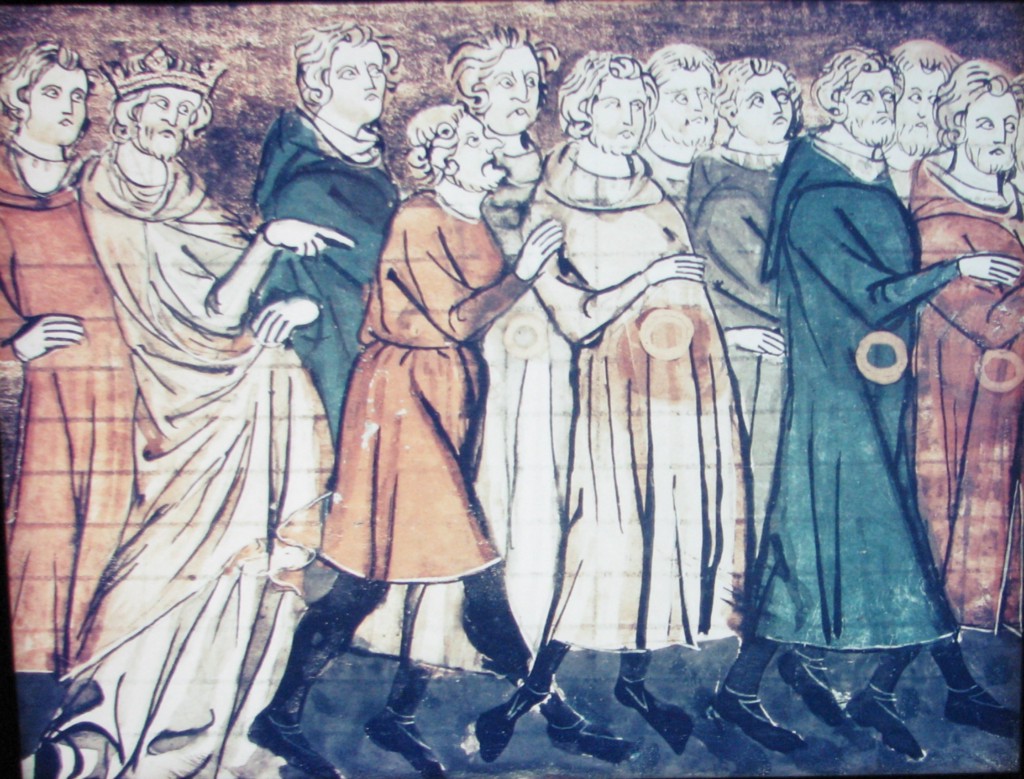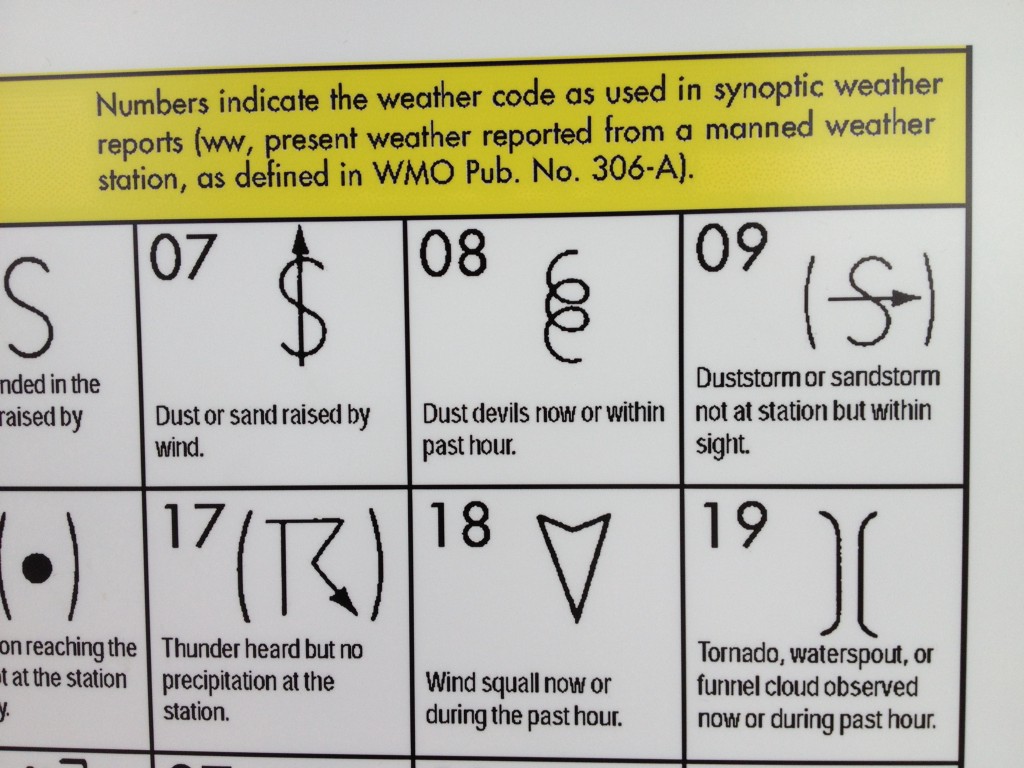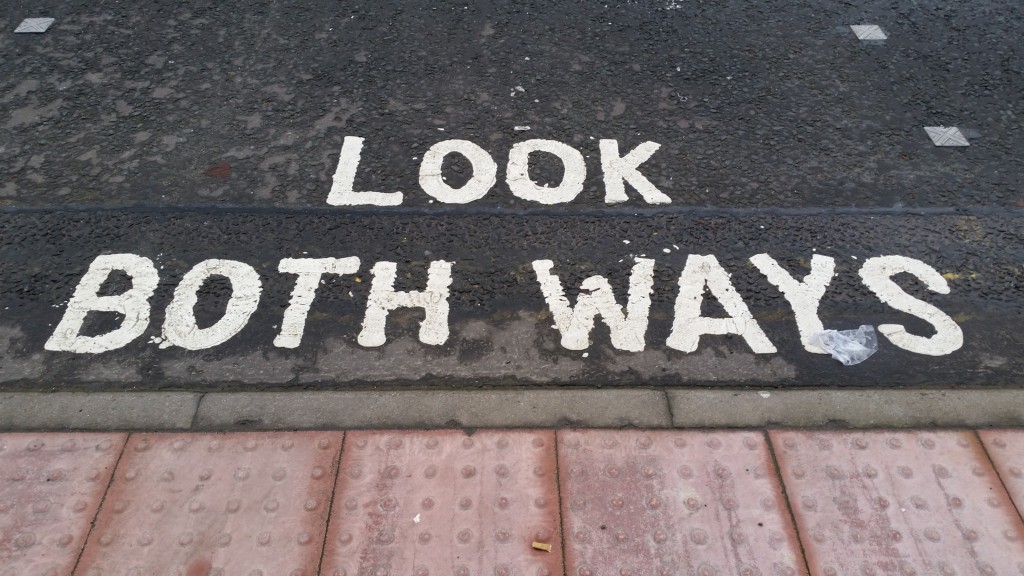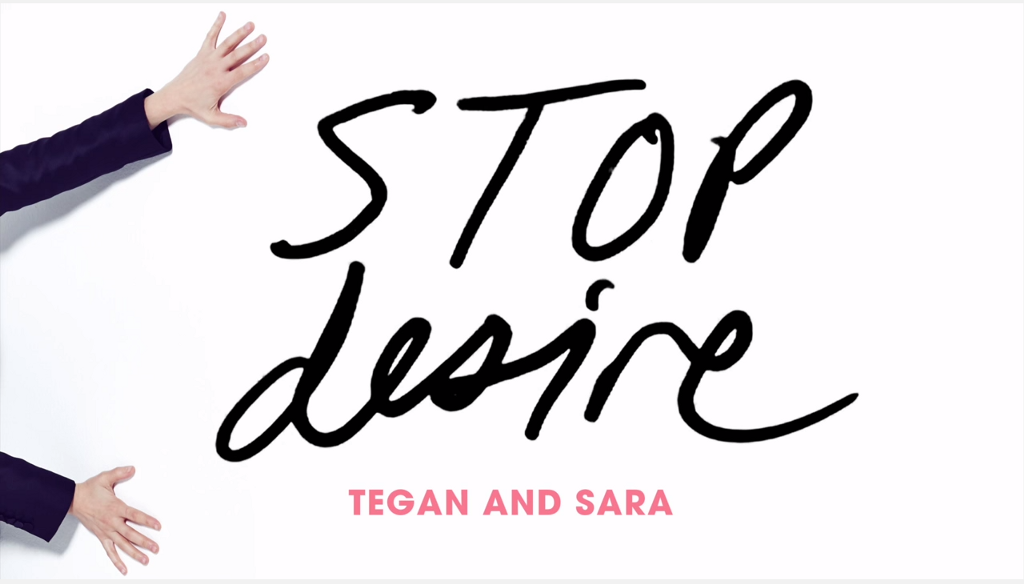Gigi Masin & Tempelhof , "Labyrinth"
I will probably regret this — I mean, what don’t I regret eventually?— but fuck it: I am excited about the weather and I think we have finally turned a corner and everything’s going to be great from now on. Yes, you heard it here first. Anyway, here’s another one from Gigi Masin & Tempelhof, whose forthcoming collaboration Tsuki (out June 10th) is one of the records I am most excited about now. (Maria Usbeck’s Amparo, one of the others, is streaming here.) Enjoy! And why wouldn’t you? The sun is shining and everything’s going to be great from now on. DO YOU HEAR ME? Everything’s going to be great from now on.
New York City, May 23, 2016

★★★★ The roar of a truck rode the fresh air up into the bedroom, intruding on a refreshing but tenacious slumber. A light haze extracted an extra shimmer from the sun before letting it reach the ground. The four-year-old proudly headed out the door in a lightweight satiny tracksuit jacket. A child, recumbent in the top deck of a stroller on the forecourt plaza, belted out “The Farmer in the Dell.” Downtown the haze gave the barren width of Seventh Avenue an anticipatory it’s-hot-in-the-city cinematic light. As the sun went higher, though, a cool marine breeze floated up the sidewalk. The air grew clearer, but the light was still soft. The glare in the sky gathered into loose but neat clouds. A toddler on a scooter crashed into the ankle of an oncoming pedestrian. A scant rain fell and stopped.
The End Of The Trump Campaign
America’s heroes step in to end all this foolishness.

Are you frightened by the possibility that Donald Trump might be the next president of the United States? Good news! Stephen Elliott, Rebecca Solnit, Michael Chabon, Lydia Davis, Rick Moody, Ben Marcus, Dave Eggers and more than 400 other writers have “signed an open letter to the American people, addressing their concerns about Donald Trump’s 2016 presidential campaign.”
Clearly this public missive will cause everyone who has thus far registered support for the presumptive Republican nominee to disavow their approval. Given how attuned literary types are to the zeitgeist — and the high level of esteem in which they are held by regular people who aren’t inclined to share every thought they have in book form — it seems unlikely that Trump will be taken seriously by anyone outside of his immediately family from now on. (That son-in-law who owns the newspaper must be particularly stung to see this stunning reaction from members of the world of words in which he spends so much time.)
Perhaps you’re worried that the opprobrium of a collection of publishing types — no matter how revered — might not be enough to end the Trump threat? Think again!
“This is not the first time in recent history that creative writers have banded together against a noxious force. In 2014, over 900 authors signed a petition that ran as a full-page New York Times ad, speaking out against Amazon, which they described as a threat to the book publishing industry.”
Remember Amazon? Of course you don’t, the writers took care of that. Everything’s going to be okay now. Go back to your copy of the latest New York Review of Books, there’s a pretty devastating takedown of Noam Chomsky toward the front.
Maybe Everyone Should Be Quiet For A Bit
Are there too many people writing on the Internet… or are there too many people writing altogether?
There are entirely too many people writing on the internet.
This man is right: There are too many people filling every possible orifice of the Internet with their idiot opinions and comical prejudices and poorly-constructed arguments. It’s painful to read and it makes finding the few gems out there a task so laborious that even the most dedicated seeker of readable prose finds herself resigned to defeat and guiltily clicking on something that promises to tell her “here’s how” or “we’re obsessed with” just to keep from being alone with her own thoughts.
But: Have you seen what’s not on the Internet? You would think, what with the supposed influence of those who man the precincts offline, away from the free-for-all of our type-and-post world, that there would be safety in the smooth, heavy paper and creamy finish of print. The work professional editors shepherd through several rounds of revisions (this is how professional editors justify their jobs) should, by virtue of this process, be some kind of oasis far away from the trench filled with misery and despair and broken hopes and terrible GIFs into which so many words on the Internet fall. And yet: THEY ARE NOT ALL THAT MUCH BETTER. (Longer, sure, but that’s a whole other issue.) Marginally, maybe, but it is a close-run thing and it is only getting worse.
As it happens, opening the gates to everyone doesn’t make the stuff coming out of the high towers any better. Those of us who were there at the popularization of the idea that if you removed the gatekeepers there would be a better, more interesting, less incestuous flow of fascinating new voices and underrepresented perspectives owe everyone an apology: It turns out most people don’t have anything very interesting to say and they’re actually a lot worse at saying it than we previously anticipated. Also, what no one expected is that shit flows upward, splattering the finer precincts we once looked to for wisdom with the same awful patina of chatty, “relatable” garbage whose ultimate goal is to be passed around without anyone mentioning how gross your palms feel once you hand it off. We were warned and we didn’t listen and now we’re all paying the price.
That said, you’re not stuffing the genie back into the bottle. The best we can hope for is that this idiot idea that video is the next big thing — and this time it’s going to happen, they tell us — actually turns out to be true and everyone moves away from words because there’s no money in them. Then, and only then, will the people who write on the Internet be the people whose only reason to do so is that they want to, or that they’re too ugly for Facebook Live (although if you have seen much Facebook Live of late I think you will agree that the bar here is comically low). Will it be a better world for those of us who like to read? I cannot say one way or another, but at the very least it will be a quieter one, and really, at this point I will take whatever reduction in volume is on offer. Now if you’ll excuse me I need to go click on a collection of tweets about which Democratic presidential candidate’s supporters are worse; while I am away you can use the conversational function here on Medium to point out that I myself should write less if I want there to be less writing, which is a thought that had never once occurred to me. Thanks!
Shrimp, Babies, and Medieval Literature
Dispatches from the strangest corners of academia

You know how people in the year ahead of you at school paradoxically retain a sheen of glamour long after you start to wish you were younger? Mo Pareles was ahead of me in the same PhD program, so she has that sheen. Pareles is a medievalist, like me, currently working as a postdoctoral fellow at NYU’s English Department (she previously held another postdoc, at Northwestern). Next year, she’s moving to Vancouver to take up a job as assistant professor of English at the University of British Columbia. She’s really made it, in other words. In a few months, Pareles will start the beginning of the rest of her career, and she’ll dedicate a lifetime of work to our beloved field. But for now it’s still late spring in Brooklyn, where Pareles lives with her wife Nicole and their 19 month-old kid, Rose.
Pareles’s dissertation was called Translating Purity: Jewish Law and the Making of Difference in Late Old English Literature. It’s about the cultural translation of the Old Testament into Old English, and how supposedly repudiated Jewish laws came to structure Anglo-Saxon ideas of difference, for example racial difference. In her work, Pareles wants to investigate the way that Christian secularity, including the academy, has inherited the tendency of the medieval Church to write Judaism and Islam out of modernity.
Here, Pareles is thinking of the awful journalist’s habit of calling ISIS ‘medieval’ when, if anything, “ISIS actually appropriates the idea of the medieval for particularly modern political purposes.” She’s also thinking of a certain “horrible meme that everyone loved in 2014.” The meme said, “if you were homophobic you might as well not eat shrimp either, because you were following all the backwards stuff in the Old Testament.” People thought this was a smart quip, since it’s “supposed to be so obvious to Christians today that all that stuff is so misguided and barbaric and in the past.” Pareles said, “I don’t eat shrimp and I am queer. And also I exist now, in 2016. So chew on that.”
Shrimp and queerness and religion are all seriously important themes in Pareles’s work. She is investigating how cultural boundaries between Christians, Jews, and Muslims get all tied up with practices around meat-eating and sacrifice, intimacy with and revulsion towards certain animals, the need to maintain the human-animal boundary. All of these things end up implicated in a kind of animalization of the non-Christian other, she suspects.
Medievalists who work on European literature have to study Christianity — there’s no way around it. Pareles never read the New Testament as a child, because she’s Jewish. But she’s fascinated by Christianity, now, “especially the bits that intersect with Judaism. Especially the anti-Semitic bits.”
Her first-ever article, in fact, was about a Yiddish translation of the New Testament that was meant to convert Jews to Christianity. She argued that it did a great job, not because it actually converted anybody, but because the translation was really very good. She read it and thought, “Yes, this is a totally convincing Jewish book.” Pareles doesn’t think her grandparents would be very happy with her work, but, she says, she “could be wrong.”
Pareles is currently turning her dissertation into a book, while also starting on a second book project based on an in-progress article called “Jewish Pasts, Porcine Futures: Infant Temporalities in the Medieval English Children of the Oven Miracle.” This second book is about Jewish, animal, and children’s time across medieval British literature.
In order to pursue this work, Pareles has to move her family to Canada. Dramatic international moves are not uncommon in families where one or more parent is an academic, but it’s still a very big deal. Pareles is pretty excited for Vancouver, though. She’s “happy to raise Rose away from things like guns.” Pareles is also keen to be going someplace she thinks her family will be welcome. “I was not happy about the idea of my kid being the Jewish kid with two mommies in a town where other parents would not be comfortable with us.” Rose is a rambunctious and beautiful toddler. My father (who knows Pareles from her research trips to England) thinks she will grow up to be a great rugby player, which seems right. She is strong and bold, with a clear tactical sense.
Before Rose was born, Pareles worried that she might turn out to be “one of those people for whom work matters less after having a kid.” The opposite happened. Things were really tough when Rose was a new baby (Nicole gave birth to them), so work became enjoyably predictable in comparison. Pareles used the words “absolute terror.” The MLA conference, where Pareles interviewed for her job, felt like a delicious break: “Everyone was stressing out about interviews and I was thinking, it’s just talking, in a comfortable chair, with smart people, about my work. The worst possibility is that the interviewers will hate me. It’s not like they are going to, you know, make me comfort a tiny baby while they put a feeding tube in her at 4am.”
Rose changed the intellectual stakes of Pareles’s research. She started to think about children, as well as animals, and what they might mean for one another as groups. Babies, Pareles realized, sit at an interesting spot in the human-animal divide. They can’t do any of the things that most non-human animals can do, or that other humans can do, but they are, nonetheless, human. They’re also a “weird site of anthropomorphism” in our culture. Adults are “constantly reading them books about, you know, bears who sleep in beds,” Pareles said, “and cuddly elephants in suits.” Rose has a towel with walrus tusks on it, which she doesn’t think is odd, because to her “that’s how a towel looks.” Pareles got drawn so deep into these ideas that they led to that second book project.
Pareles read Seamus Heaney’s Beowulf to Rose when she was a baby, and “she seemed to like the rhythm of it.” That makes sense: Old English has a sort of gruff, mellifluous sound, and the poetry rocks back and forth in your ears. And of course, “when you’re a medievalist, anytime anyone is excited about anything, you just point out that it was actually invented in the Middle Ages.”
Rose will grow up knowing about the medieval roots of everything she likes. With Pareles as a parent, she will in some ways grow up against the vast backdrop of the last millennium of theological thought. But the most important thing to Pareles is just that Rose is interested in learning. She can read whatever she wants. Well, “not Jonathan Franzen, obviously,” and “definitely not Jean M. Auel.” But everything else is fine. She may not become a medievalist, but I have no doubt that Rose’s mind will grow broad and rich as she toddles around UBC with Mo and Nicole. The world is her shrimp.
Josephine Livingstone is a writer and academic in New York.
What Is The Value Of A Character?

Now with the new changes, Mr. Dorsey can have it both ways: keep the 140-character limit while also allowing tweets to be longer.
Twitter has announced quantitative easing for your tweets. User handles, photos, GIFs, and videos won’t count against your archaic Short Message Service word count. But what about emojis, Jack Dorsey? Or what if I wanted my tweet to grow a beard because my tweet was in a mature and different phase of its life? They say a beard gives you more power, but does it give you any character? Anyway, the shruggie still counts as like nine characters.
Should You Ever Take Advice From Anyone on The Internet?
We’ve reached the point in the Great American Story where thinking about doing things is basically like doing them.

Giving advice over the internet is easy. I have done it anonymously, under my own name, and under the guise of Grandma Jim, for some reason, in various places. Men are particularly good at giving advice over the internet, often unbidden. Somehow, we men just think we know everything. Or, even if we don’t think we know everything, we think that somehow our not-entirely-knowing something can be some kind of answer. An answer that might amuse people sitting at desks all day looking at websites.
And thankfully somehow the worst advice can sometimes be the best: the kind of advice best ignored, the handkerchief you release and let billow over the rail of the Staten Island Ferry at midnight. “Screw you! I’m gonna do it my way, Jim Behrle!” you scream over the white ferry rail. And you should. You should do it your way.
“I should have listened to Jim Behrle” is a sentence no one has, before this sentence, ever said or written or thought. I’ve never been a dad (that I am aware of) or ever held a position of any great responsibility. And I generally live a charmed, if sheltered, existence in North Jersey. I spend many hours on my back, throwing a baseball toward the light above the thing I use as a couch, which is a cot mattress and a fake leather futon cushion I found on the street and a large, red broken Ikea bookcase that holds the whole thing up.
Knuckleball after knuckleball flutters toward the light, which I sometimes hit. I use a ball some player threw me during batting practice before a Cincinnati Reds’ game on a trip I took to celebrate 6 months’ sobriety many years ago. I have signed my name all over the ball, over and over, in many different colors. It has large raised red stitches, which helps me with my various knuckleball grips. This is how I spend my days. Working in a bookstore, seeing my shrink, sometimes cooking, and throwing a ball over and over at the ceiling.
Have I written advice columns before because I think people should emulate my lifestyle, my approach to the world of things? No, that’s not why I have ever written them. I do not think that this is the only way to live. My apartment is messy. I don’t get laid very often. I don’t make much money at the bookstore. And I live in New Jersey.
What do I think of as I watch the ball flutter toward the ceiling? I think to myself, should I be writing?
Giving people advice over the internet is much better than doing it in person. If you give someone advice at work, at some point you will have to follow up with them. “Did you end up giving your dog that mohawk?” you’ll ask as you wait for your microwave burrito to finish cooking. They will shrug. No one ever does anything. They just like to consider doing things.
But we’ve reached the point in the Great American Story where thinking about doing things is basically like doing them. How often will you ruminate on whether you should leave New York or not? Ruminating on it and actually doing it are basically the same thing, except you skip the part where you wish you hadn’t moved out of New York entirely. It is all in your head, like everything really is. I am not a real person, I am just words in your head typed by a guy you will never meet saying “Sure, give your dog a mohawk. Dogs don’t care what their haircuts look like, unless it is like totally in their eyes.”
When, honestly, I have no idea what dogs want. I mean, to be petted. And pretend bacon, clearly. Dogs have tails so they know when they’re happy. Human fetuses have tails. Until we are like 8 weeks old. Some humans are born with tails. If humans didn’t cut off their tails at birth, we’d be a lot happier. At least we’d know we were happy. You’d look back, see the tail wagging and think, “Well, I must be happy.” And isn’t being happy what people want?
I do not know what people want. Often, I will think to myself, what do people want from me? As I am picking dandelions or throwing a baseball over and over. Do you really want to be happy all the time? Wouldn’t that be boring after a while. If the weather was beautiful every day, wouldn’t we completely stop giving a shit about the weather? Wouldn’t we bitch about how it never rains? I mean, yes, probably, we would do that. Humans are not built for sustained happiness. We are weirdly-self-thwarting creatures, determined to bitch about shit even when our tails are wagging.
No writer is happy, like no human is entirely happy. Dogs don’t even write, no one ever teaches them to write. Their stories would be about sniffing each other butts, probably, if they could write. I once smelt a really great butt. There was a dog in a Dave Eggers’ story, but I don’t know. He was a fast dog, I guess. But writers are miserable! Because writing is hard. And no one cares about what we write. And even when people do like what we write it’s kind of depressing and anti-climactic anyway. I mean, look at J. K. Rowling. She is the most successful writer of basically all time. Then she writes mysteries under a pseudonym. And gets caught almost immediately. And then she’s broke or something and decides to make movies about monsters or quidditch matches or whatever. Then she writes a Harry Potter play. That is coming out this summer.
And you’re like, J. K. Rowling, you’re all over the place. Can’t you just spend your days eating skittles and counting money all day? No, she is a writer. Nothing can ever be easy for her. Everyone wants more Harry Potter constantly. She must be so sick of all that shit by now. But that is all anyone will ever want from her for the rest of her life. Wouldn’t that drive you insane? What I’ve just laid out is the best-case scenario. Look at George R. R. Martin. The man is a basketcase. He can’t write fast enough and the pressure is getting to him. I would have just hired ghost writers to write for me and go back to eating skittles. But he can’t. He’s lost! And life is hard! And no one’s tails are wagging!
Also, giving people advice over the internet means you don’t have to watch as that advice totally ruins their life or anything. Like who could stand that? I picked a dandelion on the way to the bookstore the other day. The dandelion wilted on the short walk through the parking lot. I put it in a dixie cup and put it in the window near my desk. It closed up overnight, poof. No yellow flower at all, just completely shut. I brought it out to the sunny deck near our bookstore and left it out there. Then I forgot about it. This is all a way of telling you I killed that dandelion. That my actions and decisions did that weed not one lick of good. If I had not picked it, maybe it would have lived a happy sun-filled life on John F. Kennedy Blvd, on someone’s unkept lawn. Being a yellow flower in the sun must be a wonderful job when the sun is out.
This is all a way of writing that I was thinking of starting an internet advice column. Would that be a good thing? I mean, maybe. People are unsure of themselves. And I am very sure about what other people should do. And I have no idea what I should do about myself. So there we are.
I don’t bring any grand life experiences to the table of internet-advice-giving. Most of my life has been a series of failures and small victories, followed by more failures. And lots of baseball games I don’t, and won’t remember. I did used to run lots of book events, and so I’ve met and heard many authors speak about their secrets of writing. That’s the questions most people ask at book readings. They try to nail down the author about how and when they write, like what’s their secret. Do they write with a big glass of red wine at dusk, or first thing in the morning after getting a little oral sex? I’ve heard hundreds of answers to this question and they’re all essentially meaningless.
I had to stop doing author events. I just could not take one more answer to the question of “when do you write?” It doesn’t matter. Writing is an unnatural act that most of us have to be forced into committing. How many nights did I toss balls in the air when I could have been writing this? Instead of writing it at 1:45 in the morning, because I could not sleep. Is it worth having written? I don’t know. This is the internet, everything here is worth having written. Or else we wouldn’t be here.
Should you ever take advice from anyone on the internet? Yes, definitely maybe. I will give you the best advice I have that you definitely did not ask for but are probably wondering anyway. And how to possibly avoid throwing baseballs around your house. The first step to being a great writer is to stop giving a shit about what other people think of your writing. See you on the internet!
Jim Behrle lives in Jersey City and works at a bookstore.
Pascäal, "Neon Depot"
Is it really going to be summer soon?
They say it’s going to be sunny and in the 80’s for the rest of the week here in New York. I want to believe it, I really do, but I have been so badly burned (in the metaphorical sense, not by the sun because God forbid that thing should show its face for more then a few minutes at any time here in the month of May) that I am extremely suspicious. Anyway, here’s this, enjoy. (Also I am still figuring out Medium! I am going to fuck up a lot of stuff! Please bear with me and if you see anything really egregious drop me a line, but do it privately so Silvia doesn’t yell at me, you have no idea what it’s like to be berated by her but it’s so bad. Thanks.)
Tegan and Sara, "Stop Desire"

Technically this song debuted last week, but I was on vacation, and you probably haven’t listened to it enough. Don’t let this weather get you down.
New York City, May 22, 2016

★★★★ Grudgingly, by noon, the clouds permitted some sort of daylight through. Out on Amsterdam it was cool, exactly cool, with no deeper chill and no swelling warmth. Red flowers bloomed on a windowsill six stories up and near the midpoint of a drab apartment building face. In the hot dog place, the speakers were swelling with Bryan Adams’ middle-school-dance vision of consummation. Out on Broadway, through the part-open window of an Impala, Biggie spoke of “Puttin’ five carats in my baby girl ear.” Two men in matching ivory suits rode by in tandem on a Segway, at least one bouquet in hand. The sun continued to slowly intensify. The air was sedative. Somewhere sounds—sirens? motorcycles?—drifted into and out of nap time. The sunset raised subtle pink lowlights on the clouds, brightening into unsubtletly before they faded out again. After that stretch of cloud had gone full purple-gray again, a thick contrail bloomed pink above and behind it. That too went dull and finally a higher, previously invisible or unnoticeable layer of cloud spread smooth pink light across a wide expanse of sky.
